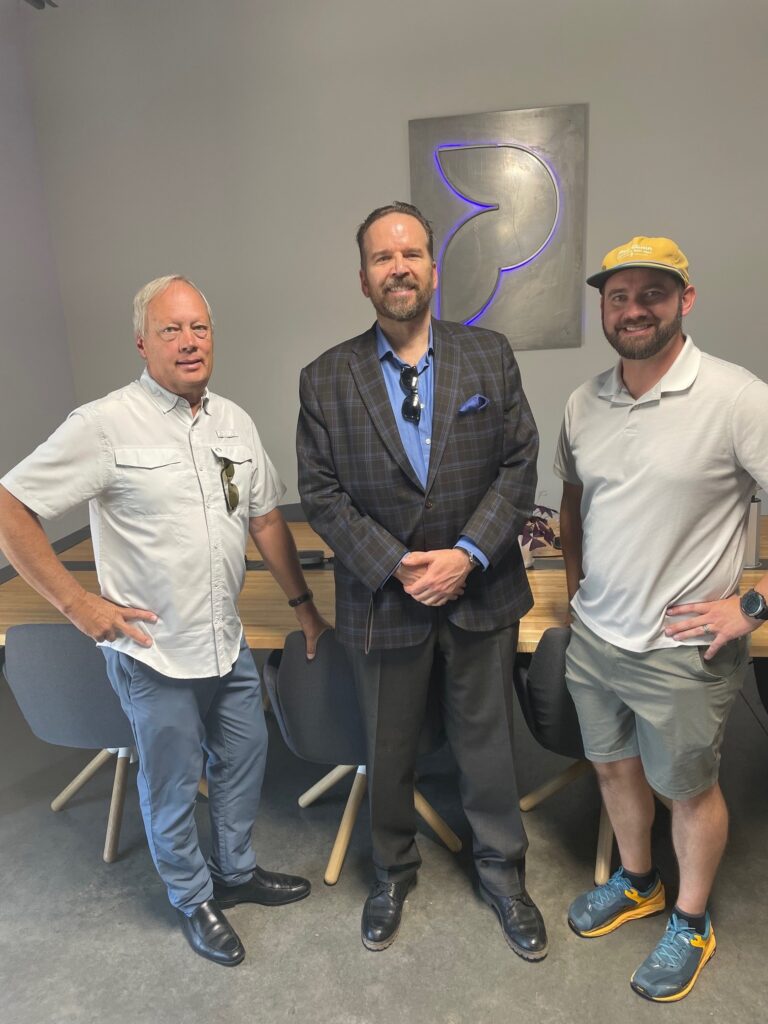by Region 8 Advocate, John Hart
Recently, Region 8 Advocate John Hart, Assistant Chief Counsel Bruce Lundegren, and Director of Regional Affairs Will Purcell toured Pattern Labs in Erie, Colorado. There, they met with Director of Operations and Co-Founder Matt Fedick to discuss OSHA’s heat rule and its impact on small businesses such as Pattern Labs.
Pattern Labs develops and manufactures autonomous robotics that load and unload airplanes and move baggage and cargo for the airline industry and airport authorities. Their automated robotics process includes advanced software development that streamlines baggage movement which enables airline and airport operations to run faster, safer, cleaner, and more efficiently.
Originally developed as unstructured autonomy solutions for warehouse storage and retrieval, the current company focuses on expanding into the airline and airport systems with current operations at Denver International Airport in Denver, Colorado. They have a small staff of roughly a dozen employees with plans to rapidly expand their business to major airports around the country.
Pattern Labs manufactures, develops, and tests at their Colorado location and is potentially subject to the OSHA Heat rule due to their industrial manufacturing and testing systems. Under the proposed rule, the small business is required to have adequate cooling systems, maintain levels of acceptable temperature, and keep a heat exposure plan for employees to “evaluate and control heat hazards in their workplace.”

Many small businesses such as Pattern Labs question the OSHA rule as it applies to their workplace environment, not fully understanding the requirements and remedies they need to comply with. Lundegren recently spoke at a quarterly meeting of the Colorado Advanced Manufacturing Association in Colorado and commented that many small businesses, especially indoor facilities, may already have an adequate response to the strict limitations of the rule. These include mandating rest and water breaks and having working air systems that manage temperatures for working employees.
The proposed standard would apply to all employers conducting outdoor and indoor work in all general industry, construction, maritime, and agriculture sectors where OSHA has jurisdiction. The standard would require employers to create a plan to evaluate and control heat hazards in their workplace. It would clarify employer obligations and the steps necessary to effectively protect employees from hazardous heat. The goal is to prevent and reduce the number of occupational injuries, illnesses, and fatalities caused by exposure to hazardous heat conditions.
John Hart serves as the Regional Advocate for Region 8 covering Colorado, Montana, Utah, Wyoming, North Dakota, and South Dakota. Please contact John Hart at john.hart@sba.gov and our other regional advocates to share your small business regulatory burdens or concerns.
